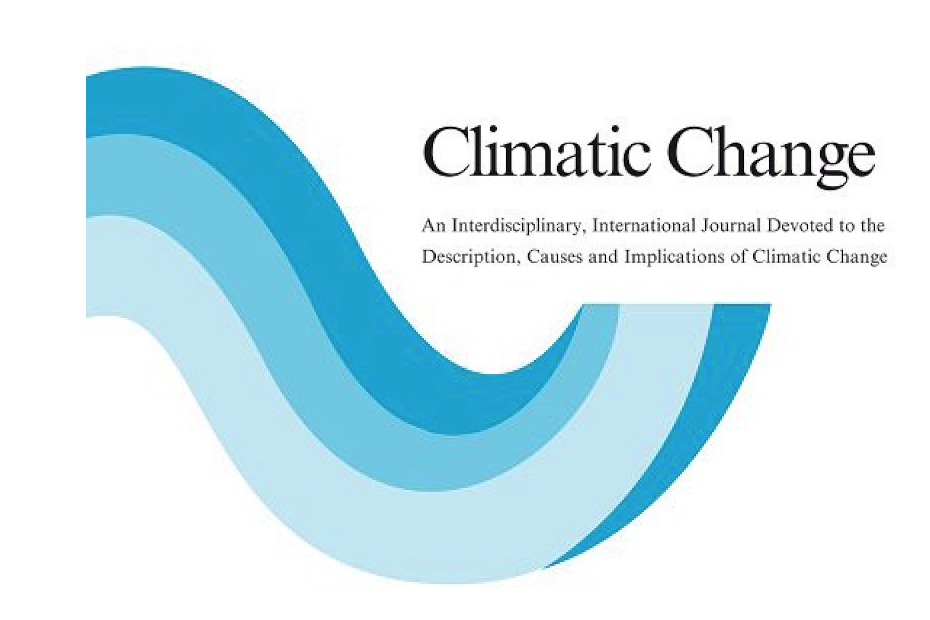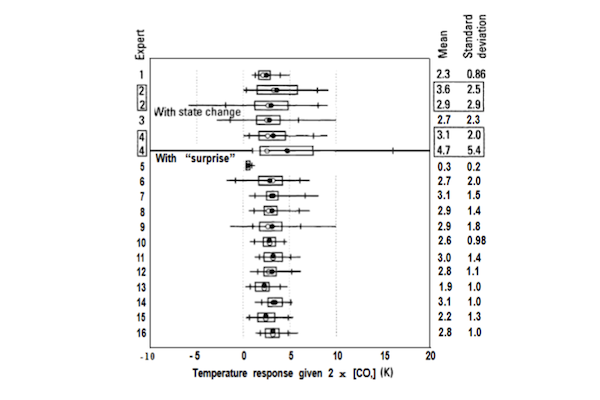
What do people think? Expert elicitation and public perception
At CMU’s Department of Engineering and Public Policy, Professor Granger Morgan asked me to help on a study of experts’ judgments regarding climate change. This study used expert elicitation techniques that Morgan and collaborators had developed—techniques designed to obtain quantitative judgments from experts as an input to public policy-making when decisions must be made in the face of uncertainty. We conducted in-person interviews, typically lasted more than four hours, with 16 of that era’s leading climate scientists. My responsibility was to know the literature well enough to ask relevant follow-up questions. I could not have had a better introduction to applied climate science: It was a career-making opportunity.
Our study, Subjective Judgments by Climate Experts had a big impact—particularly the probability distributions for climate sensitivity. Our results helped Morgan, along with Stephen Schneider, push the IPCC to be more systematic in describing the uncertainties inherent in predicting climate change.
I later did expert elicitation work on several other climate related topics including aerosol radiative forcing, solar geoengineering, and the cost of solar photovoltaics (in which experts spectacularly underestimated the speed of cost declines).
Also while I was at CMU, Baruch Fischoff and others introduced me to survey methods for understanding public perception of technologies. We conducted one of the first surveys of the public’s perception of carbon capture and storage (CCS). I later used those methods to carry out the first survey of the public’s understanding of solar geoengineering and to assess the judgments of US and Chinese experts regarding solar geoengineering.



Subjective Judgments By Climate Experts
When is it appropriate to combine expert judgments?
Public engagement on solar radiation management and why it needs to happen now